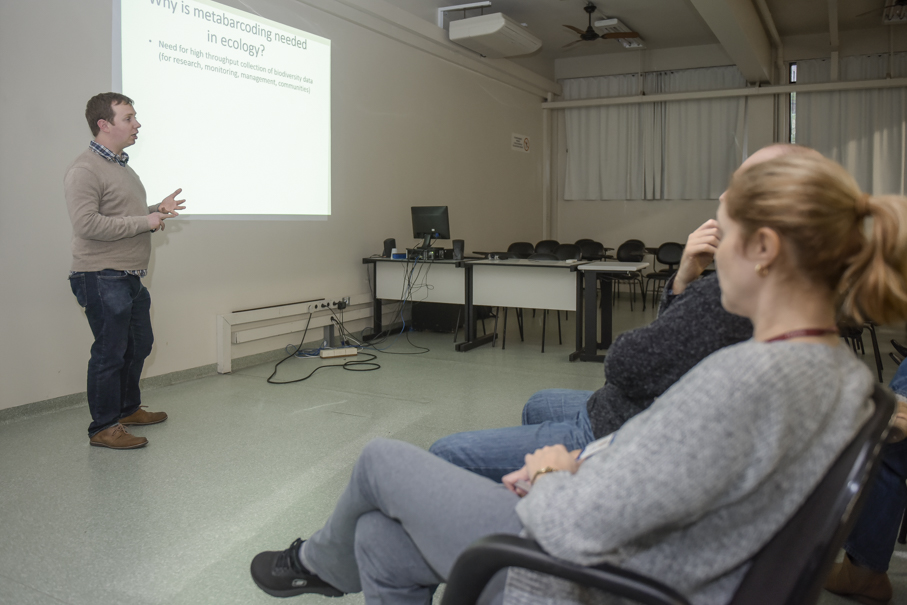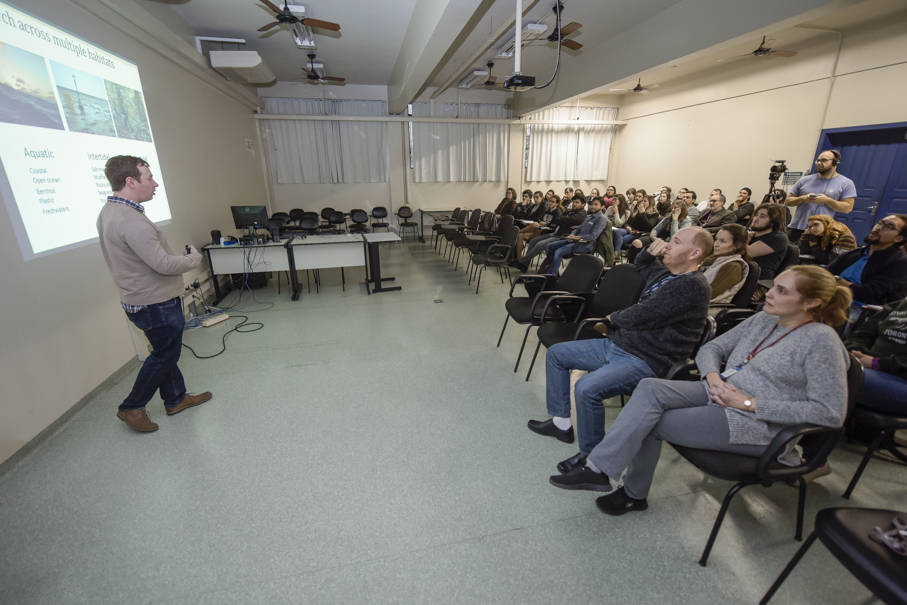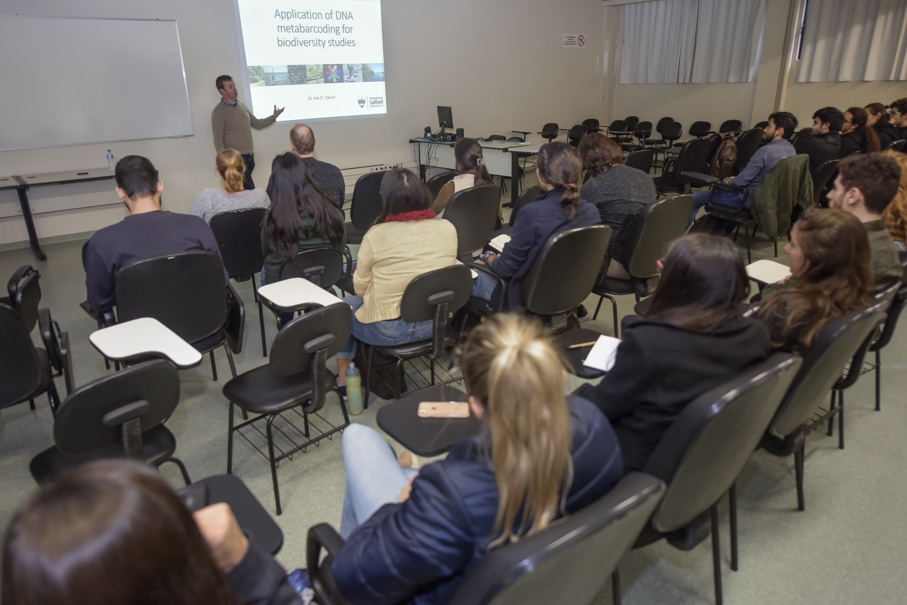University of Salford professor delivers lecture under PUCRS-PrInt
Joe Taylor talked about metabarcoding in environmental DNA in lecture for graduate school
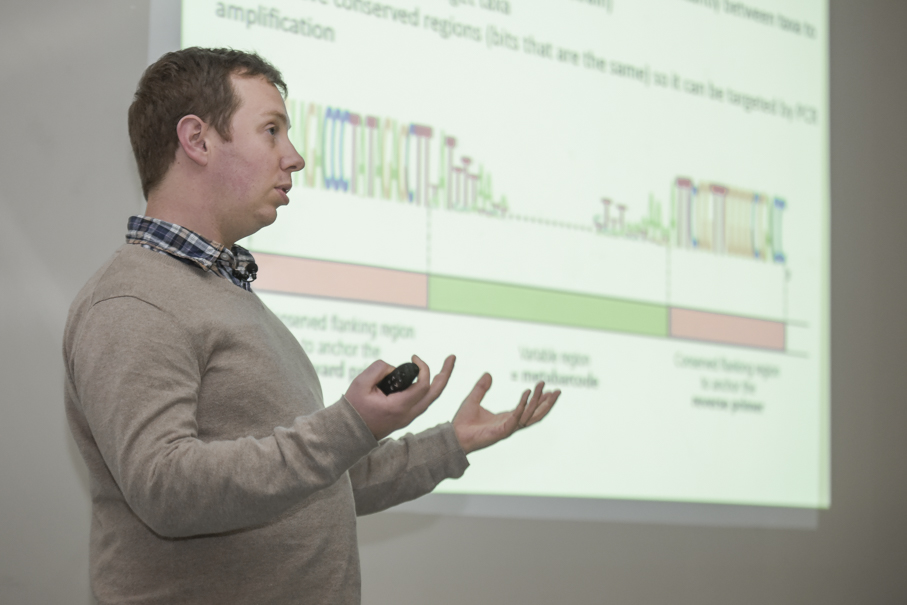 Dr Joe Taylor, professor of the University of Salford, UK, is the third visiting professor to come to PUCRS within the scope of the program PUCRS-PrInt (Call 03/2019 – Visiting Professor in Brazil). Taylor, who came to PUCRS early in June, is a faculty of the School of Environmental Studies and Life Sciences at the British Institution and will be working under the cooperation project Genomic Advances and their Impacts on the Study of Biodiversity, which is coordinated by Prof. Sandro Luís Bonatto, under the priority area Technology and Biodiversity: Sustainability, Energy and the Environment.
Dr Joe Taylor, professor of the University of Salford, UK, is the third visiting professor to come to PUCRS within the scope of the program PUCRS-PrInt (Call 03/2019 – Visiting Professor in Brazil). Taylor, who came to PUCRS early in June, is a faculty of the School of Environmental Studies and Life Sciences at the British Institution and will be working under the cooperation project Genomic Advances and their Impacts on the Study of Biodiversity, which is coordinated by Prof. Sandro Luís Bonatto, under the priority area Technology and Biodiversity: Sustainability, Energy and the Environment.
Metabarcoding using environmental DNA
Some of the activities on his schedule at PUCRS included, on Jun 4, the lecture DNA metabarcoding in biodiversity and conservation studies for School of Sciences students. In the session, Joe Taylor talked about how the high-productivity DNA sequencing of directed phylogenetic markers (metabarcoding) increased our understanding of microbial biodiversity in water and terrestrial systems, as well as in medical and veterinary sciences research. Metabarcoding using environmental DNA (eDNA) of water, solid, air, intestinal content or other types of samples is increasingly being employed in conservation and biodiversity studies.
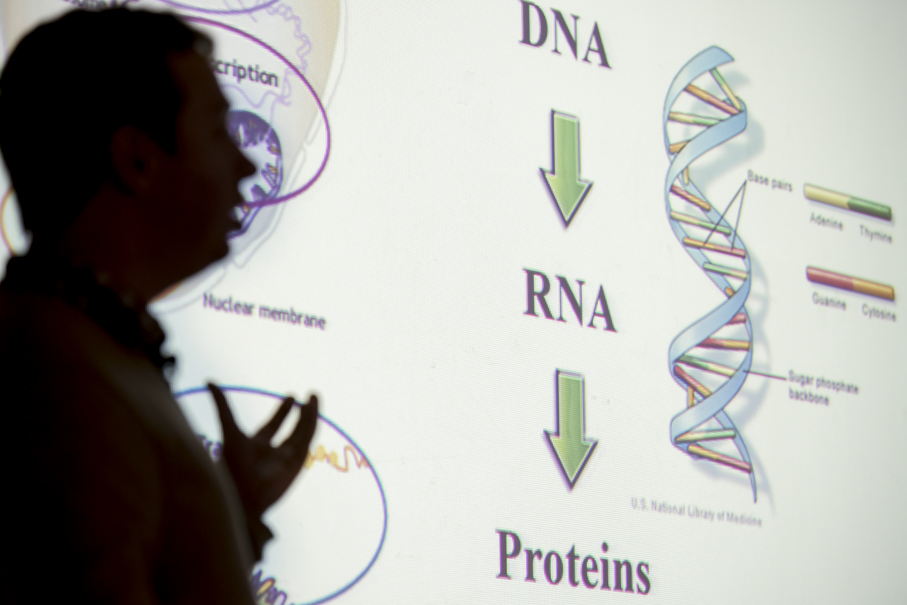 Joe Taylor presented an overview of metabarcoding, its modes of operation and some considerations for experiments. He used his own research methods into microbial communities (fungi, protists and bacteria) which show how the metabolism can be used along with stable isotope analysis techniques to address the functional diversity and taxonomic diversity.
Joe Taylor presented an overview of metabarcoding, its modes of operation and some considerations for experiments. He used his own research methods into microbial communities (fungi, protists and bacteria) which show how the metabolism can be used along with stable isotope analysis techniques to address the functional diversity and taxonomic diversity.
Other activities in the program
Joe Taylor will also be teaching the course Application of DNA metabarcoding in biodiversity studies to students in the Graduate Program in Ecology and Biodiversity Evolution and Graduate Program in Cellular and Molecular Biology. He is also expected to conduct laboratory practices, conduct visits to the Pró-Mata Center for Research and Conservation of Nature, hold data discussion sessions and write an article with the cooperation project team.
